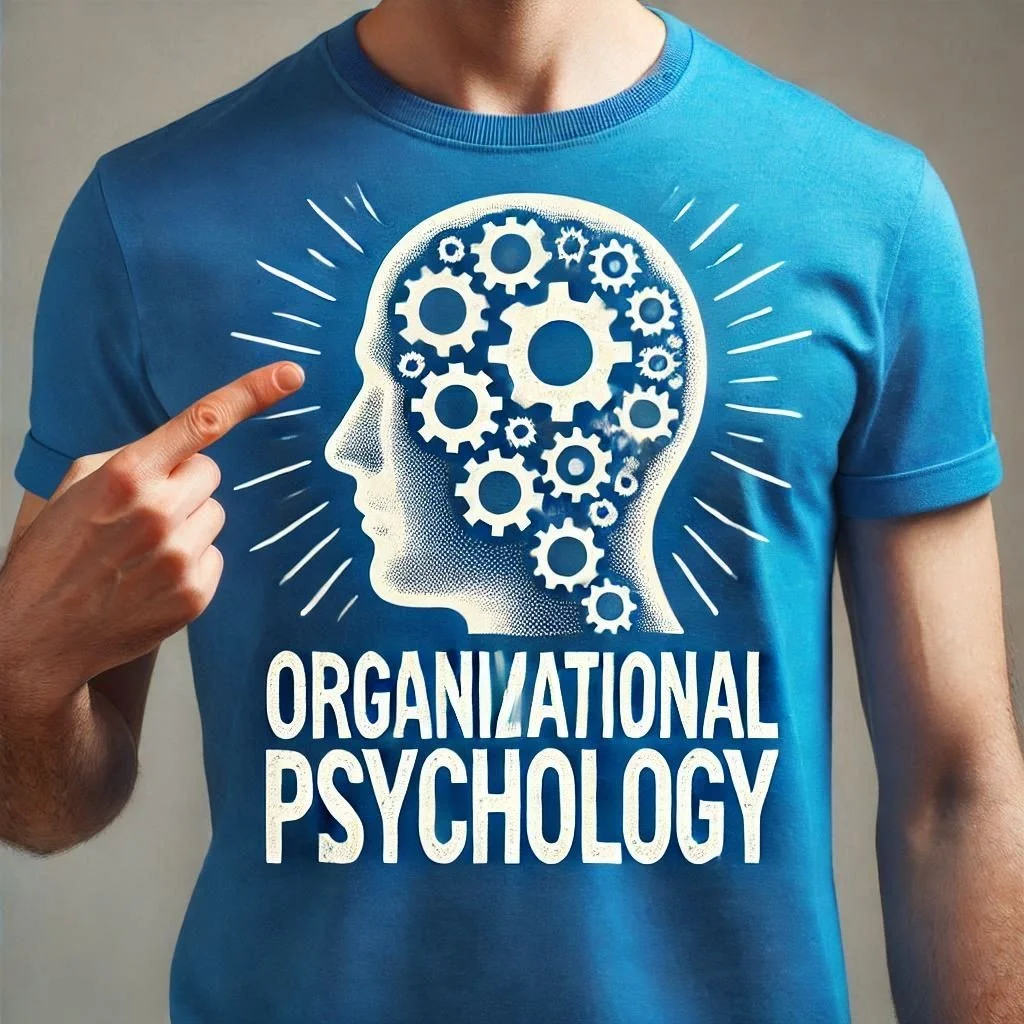The eight best ways to transform organisational psychology
Image generated by Microsoft Copilot
The entrepreneur Sir Richard Branson is quoted as saying: “always say yes and work out how to do it later”. Fundamentally, saying ‘yes’ is an approach to organisational psychology that is about creating the most conducive business climate possible for thought leadership, critical reasoning and problem solving. It compels an organisation to think beyond its limitations, reject the prospect of failure and utilise its resources more effectively. Saying ‘yes’ therefore, speaks to an organisation’s state of mind.
Think about it logically, no investor would want to do business with an entrepreneur who always offers excuses or is more likely to say ‘no’ when presented with opportunities. Neither would any customer be inclined to continue to use a service that is unable to respond to their needs and wants. By contrast, saying ‘yes’ can point to real benefits for those who are willing and able to apply minds, organise effort and take risks.
For the purposes of this blog ‘yes’ functions as a proxy for the kind of psyche that will best enable an organisation to tap into the latent potential and capabilities of its employees and be most likely to deliver desired outcomes and end results. The knock-on effect is that with the right organisational psychology, a business will be better able to maximise the range of economic and commercial opportunities that are available to it. But how do you transform organisational psychology? Well, set out below are the eight best ways.
1. Intellectual athleticism
Organisations generally fall into two psychological archetypes: ‘producers’ or ‘consumers’. Organisations that ‘produce’ give licence to creativity and thought leadership. By contrast, ‘consumers’ operate within the stifling environment of command and control. The chances are that, if an organisation does not know which archetype describes it best is more likely to experience intellectual atrophy. The approach to ‘knowledge’ says everything about organisational psychology. Whether or not every idea is adopted is not the point. The point is that the rank and file of an organisation can clearly see that their input is valued. An organisation that values the contribution of its employees shows that it is ‘open for business’ when it comes to doing things differently or doing different things.
2. Productivity dividend of the critical mass
Levels of productivity can say a lot about organisational psychology. This is because when employees are stimulated by the right incentives, they are more likely to be productive and productive people are more likely to meet deadlines, achieve targets and set standards. Sometimes the best incentive is the ‘psychology of mutuality’ when highly motivated employees are encouraged to interact with each other, creating an environment in which the bar is being constantly raised. However, there is a flip side – specifically the risk of becoming dependent on fewer people to work harder for those that do not do enough. In such circumstances, an organisation can unwittingly develop the wrong kind of psychology and become the perfect hiding place for mediocrity. It is important to remember that organisational effectiveness is not a measure of the strongest point, it is a measure of the weakest.
3. Democratised hierarchy
This is neither a contradiction in terms, nor a play on words. Rather, it is a test of how well an organisation balances the need for accessibility and accountability. Of course, by its very nature, a hierarchy cannot be a democracy; both are unique and distinct entities and constructs. A hierarchy derives its power from vertical authority, whilst a democracy derives its power from lateral equality. That said, one of the primary goals of every organisation should be, in so far as possible, to democratise its functions to increase empowerment and engagement. Delegated decision-making is a specific example of this kind of ‘democratisation’, which significantly contributes to a sense of equality. In the context of organisational psychology, ‘democratised hierarchy’ tells employees that they are not just stakeholders, they are shareholders.
4. Proximity to competitors
If you want to test an organisation’s psychology, see how it responds in the face of competition. Does it shrink back and go into defence mode? Is it relatively impassive or indifferent to the perceived threat? Or does it reassess, reposition and reassert its dominance? An organisation that does not expose itself to the disruptive energy of competition, is likely to already be in a state of drift and decline. Competition does not just develop organisational psychology; it sharpens and fine tunes it. If organisations are ‘living entities’ and living entities respond to stimuli, then how an organisation responds to the stimulus of external competition, will quickly determine whether it is alive or dead.
5. Scorched earth policy
The ‘comfort zone’ is the biggest psychological barrier to organisational learning, development and growth. By definition, a ‘comfort zone’ speaks to stagnation rather than pace or acceleration. The rhythm and routine of risk-taking runs counter to the tried and trusted formula of the familiar. However, the culture of risk-taking and the behaviours that facilitate it, only become habitual when organisations systematically ‘scorch the earth’ behind them and make it impossible to go back to the way things were. The proverbial ‘comfort zone’ is not where growth happens. On the contrary, growth happens when organisations are prepared to navigate unchartered territory and do what has never been done before.
6. Cognitive balance
Read the blog ‘eight best ways to create a great product’, it perfectly expands and expounds on the principle of cognitive balance. Essentially, it asks whether your organisation is equally obsessed with the points of detail of product excellence, as it is with the bigger challenges of generating profits. Here’s a test: take a scrap of paper and discretely discard it in an open plan office, where can be visible to passers-by. Then see how long it takes for one of your colleagues to pick it up and put it in the waste-paper basket. The length of time that it takes for someone to correct what is obviously wrong, will tell you a lot about the psychology of your organisation. The point is this: when you are obsessed about the small things that matter, then you will be just as concerned with the big things that count.
7. Focus or fixation
The dual concepts of ‘focus’ and ‘fixation’ speak to the psychology of attentiveness and function in much the same way as a bifocal lens. A healthy organisation understands the level of attention and intensity that is needed at any given moment to any given issue. As part of this, an organisation’s focus speaks to the broader level of attention that is required for the most important issues facing it. These may include such things as improving customer satisfaction and raising employee productivity. By contrast, at a granular level, there will always be issues that require an organisation to fixate upon. These may include such things as reaching customer satisfaction targets or reducing sickness absence levels. ‘Focus’ and ‘fixation’ are different states of mind, that require differing levels of application. In the context of organisational psychology, the ‘trick’ is to know what to focus on and when to fixate.
8. Testing the tolerance threshold
One of the most effective tests of an organisation’s psychology is how it responds to ‘pain’. For any organisation, the natural impulse is to run from pain, not run towards it. Yet, hardship and difficulty can shape the character of an organisation and test the resilience of its employees. Not only that, but adverse circumstances can often be the ideal breeding ground for innovation and creative thinking, which are essential survival skills in disruptive environments. Yes, of course a mature organisation is adept at avoiding crises and mitigating risk. However, a strategically and tactically competent organisation, understands how exposure to manageable risk can test the robustness of systems, processes and capabilities. In the context of its psychology, every organisation needs to know how much ‘pain’ it can tolerate.
Psychology is one of those intangible aspects of organisational functionality, that is critical to long term sustainability and success. That is because there is a direct correlation between the way in which organisations think and reason and how they act. An organisation’s mindset is also important because it forms the foundation of the habits, behaviours and ways of working that are emblematic of its culture. That said, transforming organisational psychology is not an easy thing to do. Anything that becomes truly transformative is always a product of intention, reflection, dissection and disruption.


